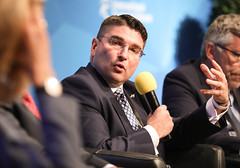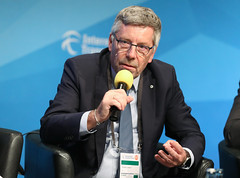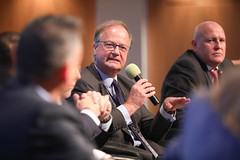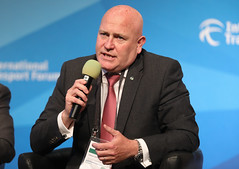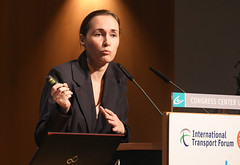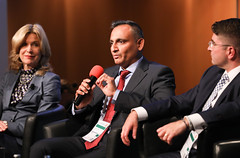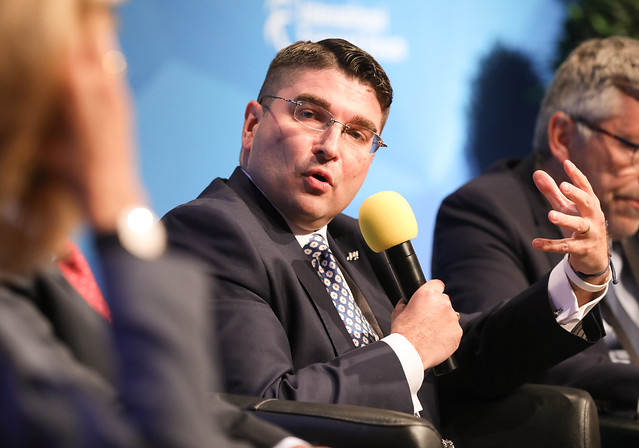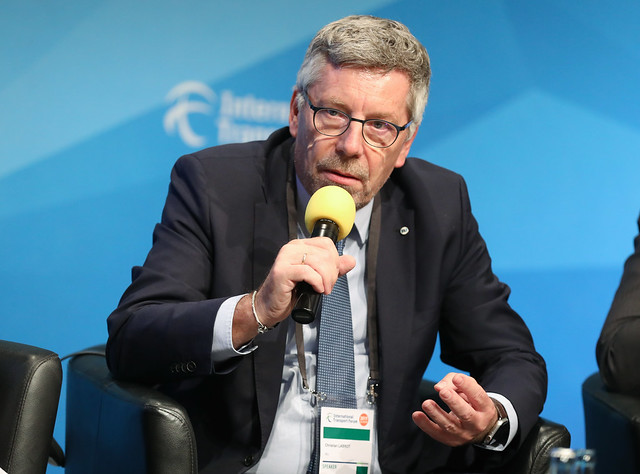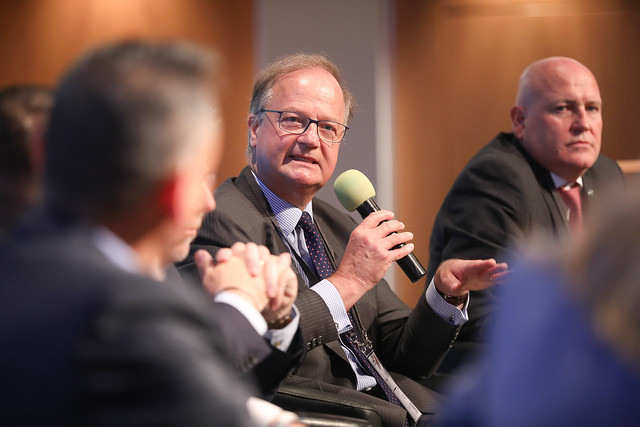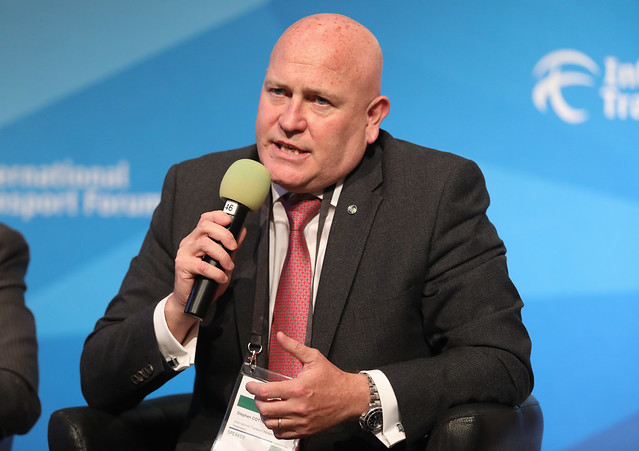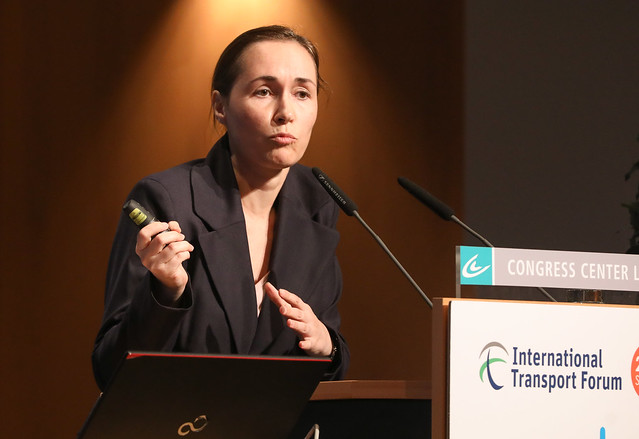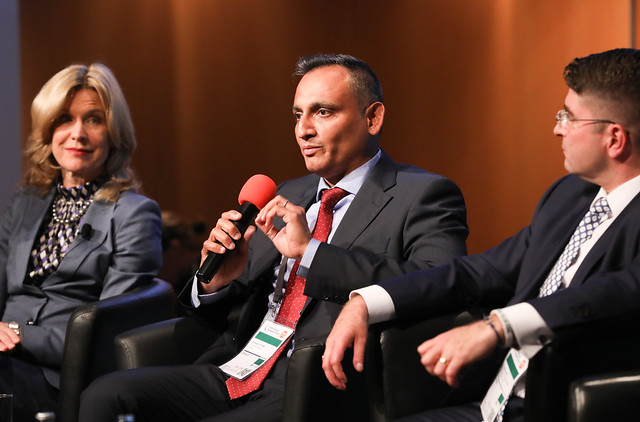Transport connectivity is essential to global value chains. Better connectivity promotes regional integration, reduces trade costs and increases volumes, which stimulates economic growth, social integration, and development. However, global changes affecting trade flows, transport and logistics create challenges for policy makers seeking to improve connectivity.
The session started with the presentation by the ITF of a newly published report “Enhancing Connectivity and Freight in Central Asia”. The project, covering five countries in Central Asia, was jointly developed by the ITF and the OECD’s Global Relations Secretariat and financed by the government of Kazakhstan. The main findings of the study are that (1) in addition to developing the main corridors, countries should develop local connectivity to provide access to the main corridors; (2) “soft” infrastructure is as important as physical infrastructure; (3) countries should develop institutional capacity to manage increasing uncertainty and the risk of dramatic increases in national debt from implementing very large infrastructure projects; and (4) intraregional and inter-institutional cooperation is of great importance for improving connectivity.
After the presentation the speakers first highlighted key global changes affecting specific sectors and particular regions. Among those discussed were the Belt and Road Initiative (BRI), increasing transport flows, political instability, lack of co-ordination, both between transport modes and with stakeholders, environmental problems including increasing sustainability concerns, the role of big data and the opportunities it provides. Sunandan Tiwari argued that the greatest environmental challenges are increasing urbanisation, climate change and biodiversity loss. He also argued for policy-makers to give more attention to the urban freight sector. Pino Musolino suggested that Artificial Intelligence applied to big data is one of the greatest future challenges. Stephen Cotton pointed out that in future we will likely have strong competition between transport logistics companies and software companies.
Several speakers highlighted the role of intermodality in reconciling economic and environmental challenges. Bruno Georges pointed out that the freight transport sector is moving in this direction by developing containerisation and that it will be very important to ensure that the necessary infrastructure is in place. Pino Musolino argued that we need a holistic approach, as we are all links in the supply chain. He noted the European TNT project as a positive example of an institutional body developing a multimodal transport network.
All participants highlighted the need for cooperation across the transport sector. As an example of government-civil society leadership on transport connectivity, Stephen Cotton mentioned the ITF’s ‘Our Public Transport’ project working with the C40 alliance, UITP, the UN, amongst others.
Christian Labrot mentioned the digital TIR convention as a solution to facilitate border crossing. He also discussed e-CMR consignment notes, which are official documents on shipments between senders and transporters that allow transport operators to record logistics information and exchange data in real time, via mobile phone or tablet. Bruno Georges discussed River Information Services (RIS). This system brings together all information services supporting traffic and transport management in inland navigation, including interfaces to other transport modes. As such, it addresses the need for real-time information exchange in inland navigation, increasing efficiency and modernising inland waterway transport, thereby fostering multimodality. Stephen Cotton expressed concern about ownership of data and suggested that it dictates who has power over supply chains. He also suggested that shared ownership of data makes transport more sustainable (e,g, e-CMR, blockchain).
Sustainability is a key connectivity issue and Sunandan Tiwari briefly presented ICLEI’s eco-logistics project, which helps cities develop sustainable urban freight action plans. Pino Musolino suggested that “the best renewable energy is improved efficiency”. Christian Labrot highlighted the importance of win-win solutions that benefit both companies and environment, such as improved logistics operations, new fuels and bigger trucks.
To finalize the session, Christian Labrot suggested that first “we should connect our minds” and search together for simpler solutions, the “low hanging fruit”, across all modes of transport.





